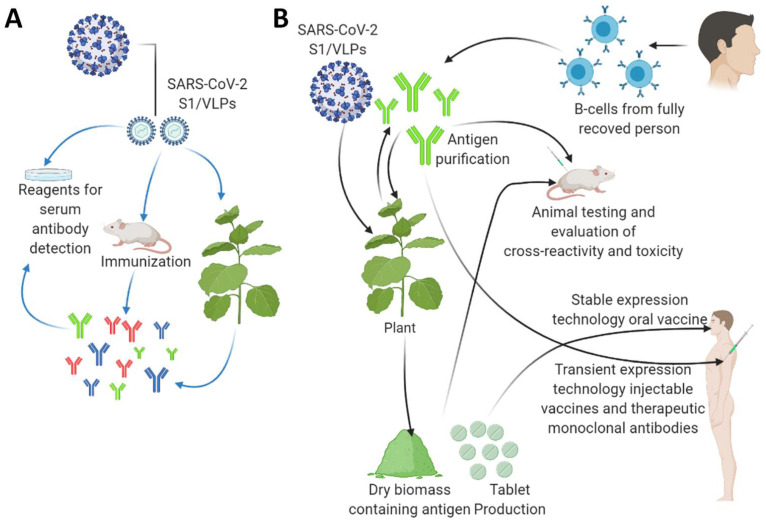Figure 2.
The applications of plant biotechnology-based production of diagnostic reagents and vaccine candidates against the SARS-CoV2. (A) Plant-based production of diagnostic reagents indicated by blue arrows. (B) Plant-based production of vaccine candidates against the SARS-CoV2 indicated by black arrows. A tobacco plant is shown as a model plant for both transient expression and stably transformed transgenic plants as a large-scale production platform. Genetic engineering approaches express target antigens by either stably or transiently transformation, enabling scientists to use different immunization approaches. The transient transformation method enables high antigen protein yields in the transformed plants purified to obtain injectable vaccines or therapeutic monoclonal antibodies. In a stable genetic transformation method, the edible plant species can provide oral vaccine formulations such as; capsules or tables with antigens from freeze-dried leaves. They can also be applied as a boosting agent. This figure is prepared by using Biorender (https://biorender.com/, accessed on 12 June 2021).

